Related Research Articles

Helen Garner is an Australian novelist, short-story writer, screenwriter and journalist. Garner's first novel, Monkey Grip, published in 1977, immediately established her as an original voice on the Australian literary scene—it is now widely considered a classic. She has a reputation for incorporating and adapting her personal experiences in her fiction, something that has brought her widespread attention, particularly with her novels Monkey Grip and The Spare Room (2008).
Patricia Anna Lovell, commonly referred to as Pat Lovell, was an Australian film producer and actress, whose work within that country's film industry led her to receive the Raymond Longford Award in 2004 from the Australian Film Institute (AFI).
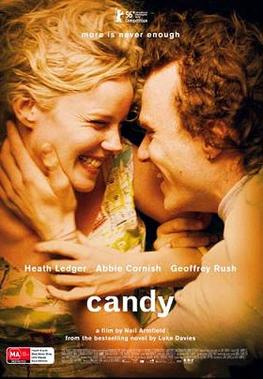
Candy is a 2006 Australian romantic drama film, adapted from Luke Davies's 1998 novel Candy: A Novel of Love and Addiction. Candy was directed by filmmaker Neil Armfield and stars Heath Ledger, Abbie Cornish and Geoffrey Rush.

Leonie Elva "Noni" Hazelhurst, is an Australian actress, director, writer, presenter and broadcaster who has appeared on television and radio, in dramas, mini-series and made for television films, as well also on stage and in feature films since the early 1970s. Hazlehurst has been honoured with numerous awards including Australian Film Institute Awards, ARIA Awards and Logies, including being inducted into the Hall of Fame in 2016.
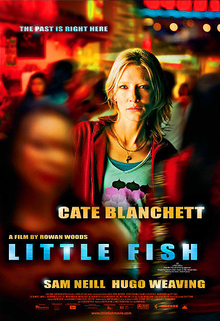
Little Fish is a 2005 Australian film directed by Rowan Woods and written by Jacquelin Perske. Starring Cate Blanchett, Hugo Weaving, and Sam Neill, the film is about a heroin addict who is desperately trying to escape her past to achieve her goals. It was developed and produced by Vincent Sheehan and Liz Watts of Porchlight Films, with Cate Blanchett and her husband Andrew Upton's production company Dirty Films receiving an Associate Producer credit.
Alice Miriam Olivia Garner is an Australian actor, author, musician, teacher and historian.

Colin Friels is a Scottish-born Australian actor of theatre, TV, film and presenter.
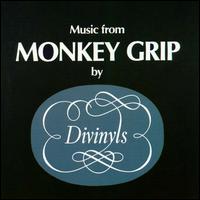
Monkey Grip is a soundtrack to the film of the same name, with songs provided by the Divinyls. The movie is an adaptation by director Ken Cameron of Helen Garner's novel Monkey Grip. The movie had little impact at the box office, taking only A$451,000. The soundtrack was released in May 1982 and peaked at #25 on the Australian Kent Music Report album chart. The soundtrack contains the band's first single, "Boys in Town", as well as "Only Lonely", "Elsie" and "Only You" – all of which are featured on the international version of the Divinyls' first studio album, Desperate. Monkey Grip also features two other songs "Gonna Get You" and "Girlfriends". Christina Amphlett also co-starred in the movie Monkey Grip, playing a temperamental rock singer loosely based on herself, fronting a band played by fellow Divinyls members.
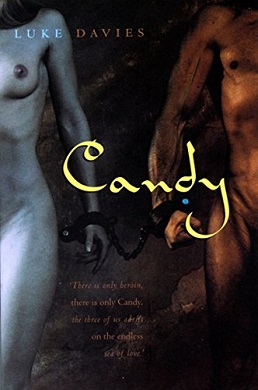
Candy: A Novel of Love and Addiction (1997) is a novel by Luke Davies.

The culture of Melbourne, the capital of the Australian state of Victoria, encompasses the city's artistic, culinary, literary, musical, political and social elements. Since its founding as a British settlement in 1835, Melbourne has been culturally influenced by European culture, particularly that of the British Isles. During the 1850s Victorian gold rush and in the decades that immediately followed, immigrants from many other parts of the world, notably China and the Americas, helped shape Melbourne's culture. Over time, Melbourne has become the birthplace of a number of unique cultural traits and institutions, and today it is one of the world's most multicultural cities.
Summerfield is a 1977 Australian film, directed by Ken Hannam, written by Cliff Green and produced by Patricia Lovell. It stars Nick Tate, Elizabeth Alexander, John Waters, Charles 'Bud' Tingwell, Max Fairchild and Geraldine Turner, and was filmed on location on Phillip Island and Churchill Island in Victoria.
Patricia Payne is an Australian screenwriter and film producer. Her best-known work is For the Term of His Natural Life, based on the book by Marcus Clarke.
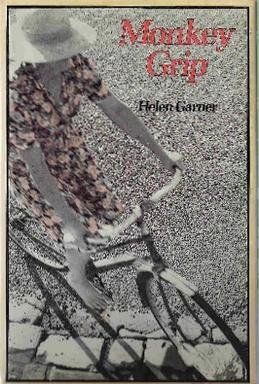
Monkey Grip is a 1977 novel by Australian writer Helen Garner, her first published book. It initially received a mixed critical reception, but has now become accepted as a classic of modern Australian literature. The novel deals with the life of single-mother Nora, as she narrates her increasingly tumultuous relationship with a flaky heroin addict, juxtaposed with her raising a daughter while living in share houses in Melbourne during the late 1970s. A film based on the novel, also titled Monkey Grip, was released in 1982. In the 1990s, when critics identified the Australian literary genre of grunge lit, the book was retrospectively categorized as one of the first examples of this genre.
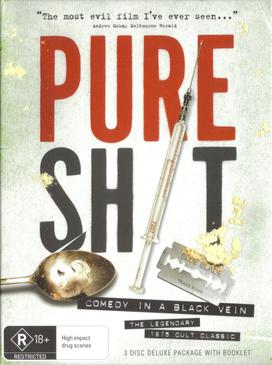
Pure Shit is a 1975 Australian drama film directed by Bert Deling.

Grunge lit is an Australian literary genre usually applied to fictional or semi-autobiographical writing concerned with dissatisfied and disenfranchised young people living in suburban or inner-city surroundings, or in "in-between" spaces that fall into neither category. It was typically written by "new, young authors" who examined "gritty, dirty, real existences", of lower-income young people, whose egocentric or narcissistic lives revolve around a nihilistic or "slacker" pursuit of casual sex, recreational drug use and alcohol, which are used to escape boredom. The marginalized characters are able to stay in these "in-between" settings and deal with their "abject bodies". Grunge lit has been described as both a sub-set of dirty realism and an offshoot of Generation X literature. The term "grunge" is a reference to the US rock music genre of grunge.
Mull is a 1988 Australian drama film directed by Don McLennan. The film is based on the popular 1986 book, Mullaway by Bronwen 'Bron' Nichols.

"Boys in Town" is the debut single by Australian rock band Divinyls, released in 1981. The song was written in 1979 and was used on the soundtrack of the 1982 film Monkey Grip, along with several other Divinyls tracks written and recorded for the film, including the single's b-side "Only You". "Boys in Town" was also included on the international version of the Divinyls 1983 debut studio album, Desperate. The song became a success in Australia, entering the singles chart top ten and peaking at number eight.
The Pram Factory was an Australian alternative theatre venue in the Melbourne suburb of Carlton from around 1970 until 1981. It was home to the Australian Performing Group and Nindethana, Australia's first Aboriginal theatre group.
For the Term of His Natural Life is a 1983 Australian three-part, six-hour television miniseries based on the classic 1874 novel of the same name by Marcus Clarke. Each episode aired for two hours on Nine Network on 23 May, 30 May and 6 June 1983.
The Digger was an alternative magazine published in Australia between August 1972 and December 1975. It was established by Phillip Frazer, Bruce Hanford, and Jon Hawkes. Notable contributors included Ron Cobb, Ian McCausland, Bob Daly, Patrick Cook, Beatrice Faust, Ponch Hawkes, Helen Garner, Michael Leunig, Anne Summers, Neil McLean, and Phil Pinder. The headquarters was in Carlton, Victoria.
References
- 1 2 3 David Stratton, The Avocado Plantation: Boom and Bust in the Australian Film Industry, Pan MacMillan, 1990 p139-141
- ↑ Maslin, Janet (2007). "NY Times: Monkey Grip". Movies & TV Dept. The New York Times . Baseline & All Movie Guide. Archived from the original on 21 November 2007. Retrieved 10 May 2010.
- ↑ "Festival de Cannes: Monkey Grip". festival-cannes.com. Retrieved 13 June 2009.
- ↑ Rod Bishop & Peter Beilby, "Ken Cameron", Cinema Papers, March–April 1979 p 259
- ↑ "David Puttnam". Filmnews . Vol. 10, no. 3. New South Wales, Australia. 1 March 1980. p. 7. Retrieved 20 December 2023– via National Library of Australia.
- ↑ "Jindalee Lady". Ozmovies. Retrieved 25 August 2021.
- ↑ "Film Victoria - Australian Films at the Australian Box Office" (PDF). Archived from the original (PDF) on 18 February 2011. Retrieved 22 November 2010.
- ↑ Wilmoth, Peter (15 June 2008). "Bach to the future". Sydney Morning Herald. Retrieved 24 July 2019.